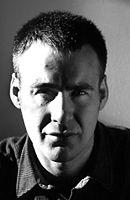Lust for Learning
 |
| Fall of Troy |
There are serious undertones into these darker epochs as the author describes the nonchalant rise of power in Vienna of a failed art student by the name of Adolph and this insight into cultural and historical Vienna, Prague, Bucharest and other parts of Europe re-visited from the 60's till now describe a scholar and soul who is not blind to the atrocities humans commit in the face of the most civilised, noble or religious pursuits. Moseley's writes about Franciscan Friar Michele De Cunheo on the Columbus mission to St Croix in Antigua in the seventeenth century and the research is singularly harrowing and critical of man's willingness to indulge in sadistic pleasure.
Equally adept at mining a darker theme, the philosophical style also serves to ridicule the emptiness of the pursuit of power and a comic aside (of which there are many) imagines the lonely Greek gecko as if a childless old man, who 'contemplates whatever geckos contemplate'.
Fans of an off beat travelogue will not be disappointed. There is loads which will appeal to those who look for clues and secrets of ancient civilisations on obelisks hidden in the museums and libraries of the Bizantine era. Also there is an understated but mordant British wit and irony in this book including how friendly local Cretans in Greece preferred Brits to German tourists in the 1960's.
Moseley can sometimes get carried away with digressions but this is all part of the charm and we feel that we are in the hands of a wry observer but also a passionate and spiritual man on a quest for understanding life through history and world travel. Equally important is this role as a Cambridge scholar and poet who continually pushes to understand more.
In much the same way Claire Tomalin cast her meticulous eye towards Charles Dickens in 'A Life', Mosley shares his own inimitable interest in life in 'Hungry Heart Roaming'.
Labels: Black Spring Press, Cambridge University, Catholicism, Charles Moseley, Classics, Greek Theology, Lancashire Fens, Medieval Renaissance Literature, Memoir, Orthodox Religion, Philosophy, Rowan Wiliams


0 Comments:
Post a Comment
<< Home